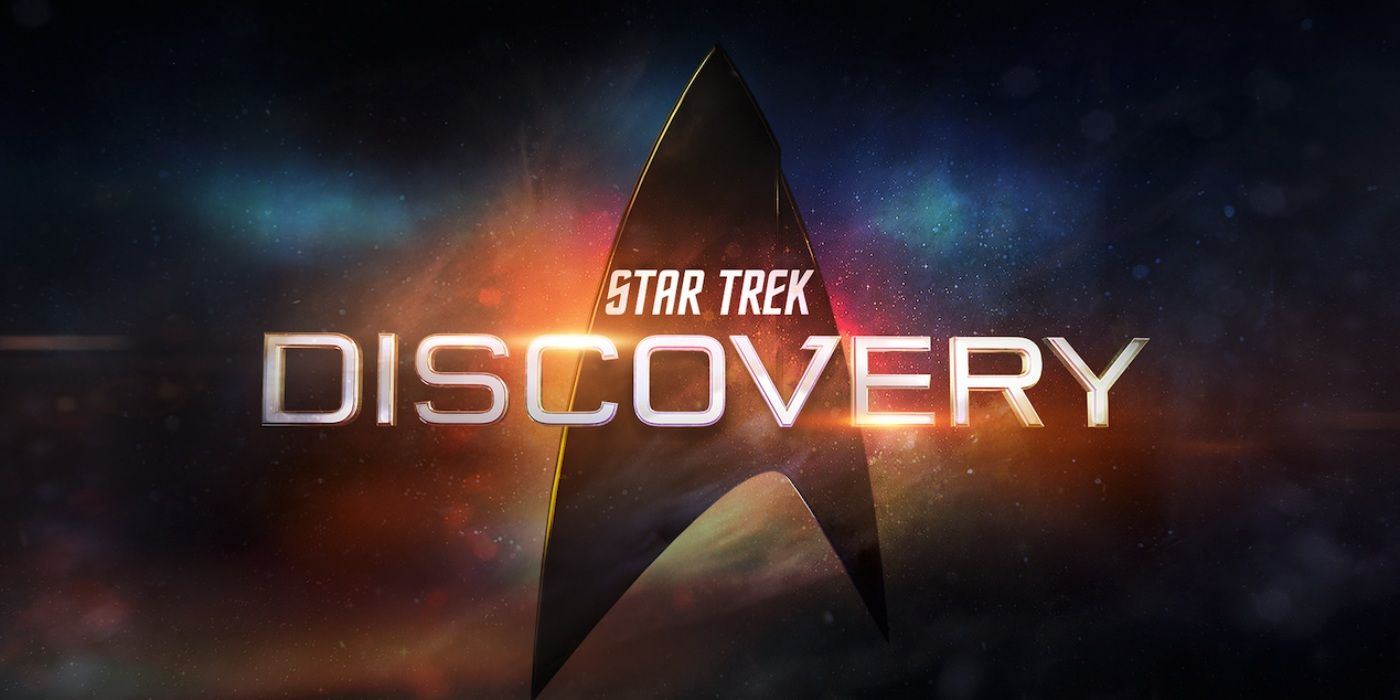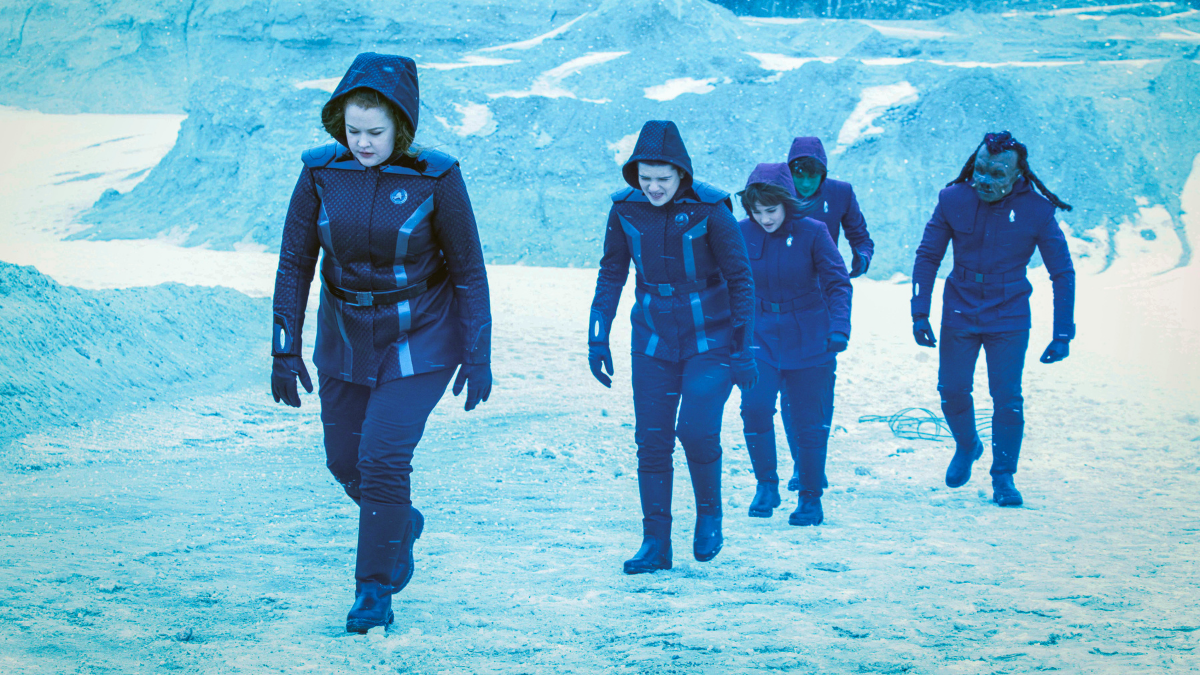WARNING: The following contains spoilers for Star Trek: Discovery Season 4, Episode 4, "All Is Possible," streaming now on Paramount+.
Star Trek: Discovery doubled down on its emotional stakes in Season 4, from the rebirth of the United Federation and Starfleet being threatened by cosmic anomalies and diplomatic incidents to longtime crew members leaving the starship. These developments come to a head in the Season 4 episode "All Is Possible," helmed by filmmaker and composer John Ottman. For a lifelong Star Trek fan like Ottman, the opportunity to direct an episode of a new Star Trek series was a professional dream come true.
In an exclusive interview with CBR, Ottman revealed his homages to Star Trek history included in his Discovery episode. He also explained the creative challenges in helming such an ambitious episode and reflected on leaning into the heavy emotions for the Star Trek: Discovery story.
John, how did the opportunity to direct this episode of Star Trek: Discovery come about? It's a big emotional centerpiece for this season!
John Ottman: I hit up Alex [Kurtzman] a couple years ago just to tell him what a fan I was of Star Trek, and how it was my entire identity, and how Star Trek: The Motion Picture, after being such a Star Trek fan, was like the coming of Jesus. He needed some help on Season 3, so I went in and oversaw some of the editors on that season and helped shape those episodes. A return for that favor was to direct an episode in Season 4 because I told him that my dream was always to become a recurring director on a Star Trek series.
One of the most bananas things about this episode is you get to direct David Cronenberg.
Yes, and that was enough! One scene with David Cronenberg and I can say, "Mission accomplished." What more could I ask for? [laughs] It's exciting to be on a set with him but unfortunately it was during COVID and we've got masks on so you can't really walk up and hang out and talk to someone who is so legendary. I think The Dead Zone is one of the best movies ever made. I put that one my top ten films of all time list.
I was talking to Mary Wiseman and she said you are a very visual director. How is it setting up the visuals as you helmed the episodes?
I think rather than the camera moving for the sake of moving, I try to use the camera to tell a story and to use it as a device to indicate to the audience and use special moves sparingly to have an impact in finding what the crux of the story is for the character and really try to milk that with the actor. If you get too much, it's always better than getting not enough so you can always cut back later editorially. I always try to milk it with them and get as much as I could, in terms of the beats that were required for telling this emotional story.
When you're approaching directing from an editing background, like Robert Rodriguez or Mike Flanagan, does that inform how you set up shots during filming knowing how they're going to be edited later?
Absolutely. I think it helps to save money and time when you pretty much know the construct that's inside your head, although I think sometimes the mistake can be made where an editor who doesn't give himself enough options is going to suffer greatly later. Especially in television when they're constantly redefining what the episode is going to be in post-production, a phase in which the director only has four days and then he's gone. [laughs] He basically gets surprised when he sees it later, so it's always good to get as many options as possible.
I think it's a balancing act but it definitely helped with this episode because it was a complicated one where we had multiple locations and very little time. We were on-location in the snow, on-location in a university posing as the planet Vulcan. We were on an AR wall and had a shuttle set and the sets on Discovery. It was very demanding, in terms of time.
The real emotional wallop of this Star Trek: Discovery episode is the conversation between Burnham and Tilly and it's a conversation that's been building for a while. How was it directing that with these two actors that have been working together closely for four seasons now?
We definitely felt the weight of that moment because it's such a defining moment of the episode, and perhaps of the season, for Tilly. You go in there and make sure you give yourself more time for that scene or milk as much out of it with the time you have to do a scene like that. You really sit with the actors and let them feel it out so they can pull it off. My job is to do that and shoot it in a way that feels as emotional as possible.
As a lifelong Star Trek fan, were there any pinch-me moments directing this episode?
You have to put Cronenberg at the top, of course. [laughs] I would say that the fact that [this episode] reminded me of that episode "The Galileo Seven" from Star Trek: The Original Series. I just kept harkening back to that and the two writers of this episode are also massive Star Trek fans. We could reference stuff just instantaneously when I was on the set talking about ideas. Some of those ideas got jettisoned but at least when we were there shooting. We would always reference that episode and that was really exciting.
Were there any flourishes or callbacks to "The Galileo Seven" you had in your episode?
In my cut, it was a lot longer but in the episode "The Galileo Seven," they're in that shuttlecraft listening to the sharpening tools around them. You just heard these sounds but didn't see them before they were pummeled by those weapons. I had a long sequence where they're hearing the noises of the tentacle monster outside and then it slaps up against the wall, similar to those characters in "The Galileo Seven."
As someone from a musical composing background -- and I love your Superman Returns score, by the way -- did you film with how you were going to add Jeff Russo's work in mind?
I don't really film with specific music in mind. I just create a pregnant area for moments that I know will be score moments. What that score will be, I honestly don't know, even if I'm the composer and director. Since I wasn't the composer on this, I could only put in temporary music and then you walk away from the episode and hope Jeff does a good job on it and he did well!
As someone who has gotten to work on Star Trek: Discovery since Season 3 and just a fan of the Star Trek franchise, what do you think Discovery uniquely brings to Star Trek?
I would say it's definitely faster moving than past shows. It's very full of energy. Discovery is one of the most inclusive Star Treks there's been in terms of races and [queer] characters and trans actors on the show. I think that's definitely the heart of that show.
Would you come back to helm more episodes of Star Trek: Discovery in the future?
Oh hell yes, I would love to!
I think I've talked to a billion people so far hinting that I would love to come back. [laughs] Because of COVID, we had to wear masks and couldn't really intermingle like we wanted to, and with it being such an intimate episode, it made it really difficult. I would love to come back to this world when we hopefully don't have mask requirements in our future and we can get into it and intermingle with the actors more. I would love to come back now that I have a budding relationship with the actors and crew.
Developed for television by Bryan Fuller and Alex Kurtzman, Star Trek: Discovery Season 4 releases new episodes Thursdays on Paramount+.



